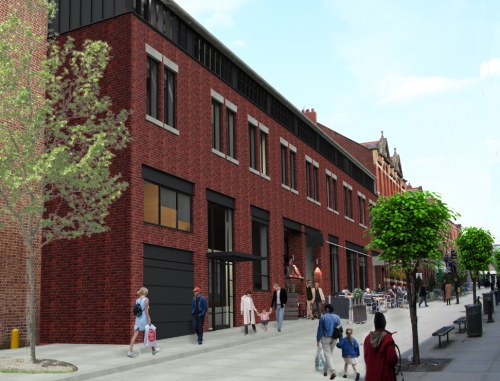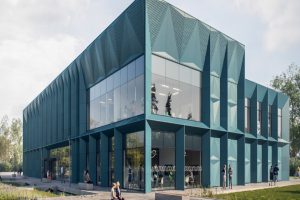Ambitious plan will create urban village in heart of city

An ambitious vision to create an ‘urban village’ in the heart of Preston has been unveiled. It is the latest stage in the bid to kick-start housing development in the centre of the city.
Preston is looking to emulate the likes of Manchester, Liverpool and Sheffield – creating regeneration and renewal around the concept of “City Living”.
It is a strategy that has worked for the North’s major cities – transforming and bringing new life to their centres. Can it work in the region’s smaller towns and cities?
Preston’s civic leaders certainly believe so. They launched their City Living strategy earlier last year. And as part of it the city centre has been zoned to help both developers and new residents decide where they want to build and live.
The council is also bidding for a share of the government’s £2.3billion Housing Infrastructure Fund (HiF) as it looks to spark interest from developers and get projects off the drawing board.
In the latest move experts have been brought in to work on the urban village plan for the historic Stoneygate and Church Street areas of the centre.
Manchester-based Nexus Planning is leading a four month project to establish the ‘urban village’ masterplan and to look at how to deliver regeneration in the area.
It includes the historic Stoneygate and Church Street areas as well as Brookhouse’s Queens Retail Park and Cardinal Newman College, alongside existing housing and business areas.
The aim is to create a development programme with a mix of housing, creative industries and business opportunities.
It follows the launch of the ‘City Living’ strategy last year which aims to kick-start residential development.
Peter Tooher, director of Nexus, saoid: “Stoneygate has the potential to be a genuine urban village, mixing housing, creative industries, business and education in an attractive, historic and diverse environment adding yet another dimension to the growth of the Preston city centre.”
The masterplan will look at ways of making use of brownfield and underused sites to create mixing housing, business, education and leisure uses.
Peter Moss, city council cabinet member for planning, said: “Developing an action plan for Stoneygate is an important next step for the city centre, and our City Living strategy.”
Cushman and Wakefield has been advising the council on how to successfully deliver the kind of new homes people will want to buy, rent and live in, having worked in a similar capacity in Manchester for many years.
Launching the initiative last year, Caroline Baker, partner of Cushman and Wakefield, said: “Manchester became the success it is today because of the public sector setting its vision and working hard to deliver it.
“Preston has enormous advantages – fantastic green spaces and parks, quality and improving public realm, beautiful historic buildings – and the intention of the public sector is to try to make development viable to drive the residential market and kick-start a city living boom.”
Building work has already started in the city. Etc Urban Developments is on site bringing a 1890s carriage works and warehouse back to life and use after decades of dereliction.
The £3.5 million GDV mixed use scheme in the heart of the Winckley Square Conservation Area, will see 18 duplex apartments created in an urban loft style above ground floor space suitable for café bar or restaurant use.
The plan is being backed by the government’s Growing Places Fund, led in Preston by the Lancashire Enterprise Partnership and part of the City Deal investment.
The company’s architects, designers and sales and marketing experts have worked on regeneration projects across the UK, including the Northern Quarter and Ancoats in Manchester, Liverpool waterfront and residential-led regeneration schemes in Leeds and Sheffield.
Neil Thornton, director of Etc Urban, says: “We believe Preston city centre needs the kind of historic residential development that has helped to transform the centres of other Northern cities such as Manchester, Liverpool and Sheffield.
“Bringing people back into the centre to live, work and play has helped to revitalise the day and night-time economies of these cities.”









